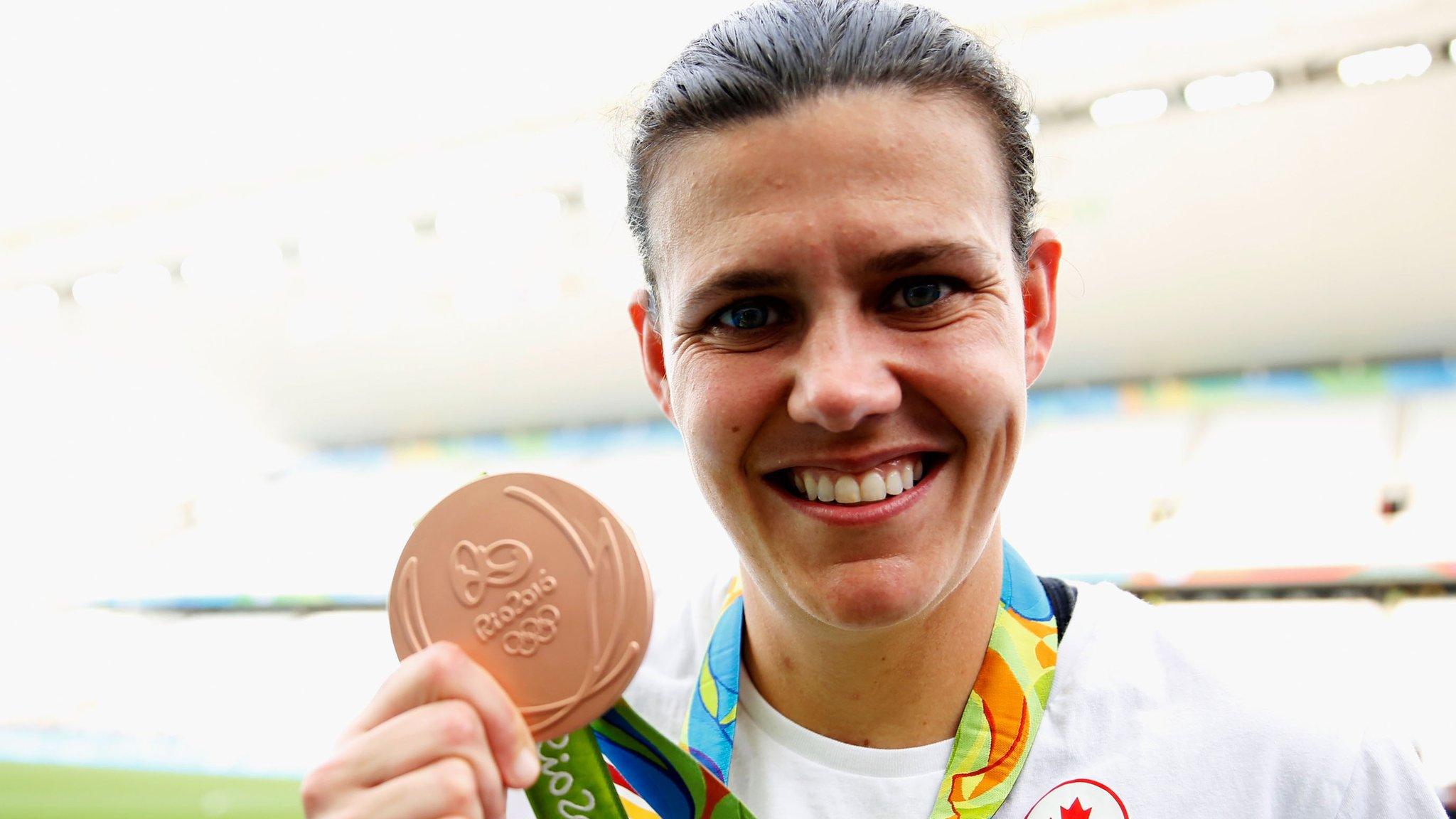BBC Women's Footballer of the Year 2017: Marta profile
- Published
Spotlight on the nominee: Marta
We are profiling each of the five nominees for the BBC Women's Footballer of the Year 2017 award. Voting has now closed but you can see all the contenders' profiles and read full terms here. The winner will be revealed on Tuesday, 30 May, during Sport Today on BBC World Service from 18:30 GMT (19:30 BST).
Selling fruit on a market stall instead of being at school, and being labelled a "macho woman" for playing football are experiences which have inspired BBC Women's Footballer of the Year 2017 nominee Marta to achieve success on and off the field.
The Brazil captain, a five-time Fifa World Player of the Year, enjoyed one of the proudest moments in her career last year when she was one of her country's flag-bearers at her home Olympics in Rio.
Becoming the most famous female footballer of the past 20 years is a dream she could never have imagined would come true when she was working to earn a wage as an 11-year-old.
"I used to sell fruit in the public market, once a week to help my family and it was not even our own fruit, it was someone else's," said the 31-year-old forward, who joined Orlando Pride in the United States in early April from Sweden's FC Rosengard.
"I worked selling clothes in street stands too. I think that's one of the things people do not believe I've done.
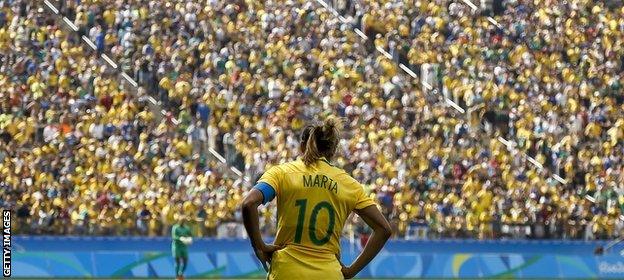
Marta captained Olympic hosts Brazil in 2016 at her fourth Games and helped her then club FC Rosengard to Swedish Cup victory and to runners-up spot in the Swedish league
"That happened when I was 10, 11 years old, when I was a kid. This is not normal, this isn't correct. Kids should be in school. But unfortunately I had no way to go to school, my mother could not take me there because of our financial situation," added Marta, who is from Dois Riachos, in north-east Brazil.
"My mum went through many difficulties with four children to raise. My father left her very early, I was less than one year old when he left. I would meet her only at night because of work and unfortunately we didn't have much time together. I saw that constant struggle and that inspired me a lot to get where I am now."
Despite her pride at flying the Brazilian flag in front of thousands of fans in Rio, the Olympics were tinged with disappointment for Marta as the hosts finished fourth after losing to Sweden on penalties in the semi-finals and then to Canada in the bronze-medal match.
But she feels inspiring future generations was a huge positive from the Games.
"We constantly noticed the warmth of the fans all the time with us, the people stuck with us," she said.
"It was sad because we did not get the medal, but I think the biggest prize was that we realised in some way that the people were with us."
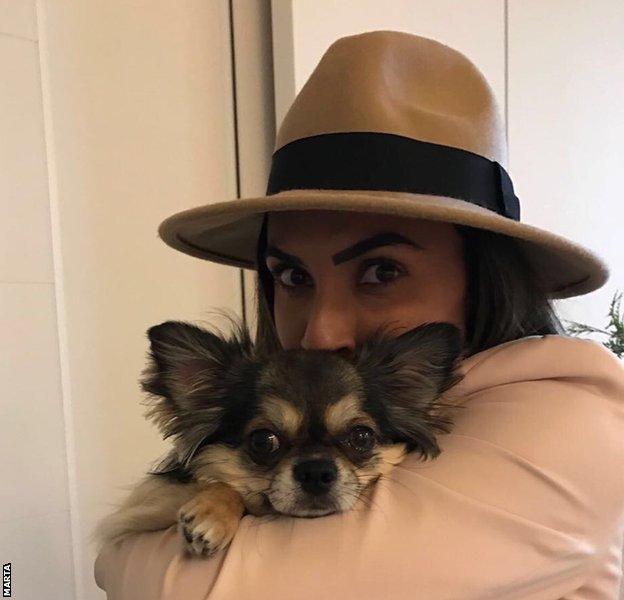
Living far from her family, Marta turns to puppy Candinho for support. "When I lose he comes to welcome me happily, when I win he comes to welcome me happily. He is my life partner."
Many defences have been torn apart by her strong running, superb control and left foot but this might never have happened if she had not left home at the age of 14 to pursue her footballing career with Rio-based club Vasco da Gama.
"I remember I suffered a lot of discrimination and prejudice. It was constant; every day," she said.
"People would come to me and say: 'It's a boys' sport, you have to play with a doll.' People would even talk to my mother and to my brother to say that they shouldn't let me play with boys."
Marta was appointed a United Nations Goodwill ambassador in 2010 and she tries to champion women's football across the globe.
"A lot of girls were actually afraid to speak out, they didn't want to be labelled as a 'macho woman'," she said. "That motivated me. Now it has changed a lot."
Why vote for me?
"I think you should vote for me because everything I do, I do with love. This shows that really what we have been doing over the years has been fruitful. It would give me more motivation to pursue my best every year."
- Published15 May 2017
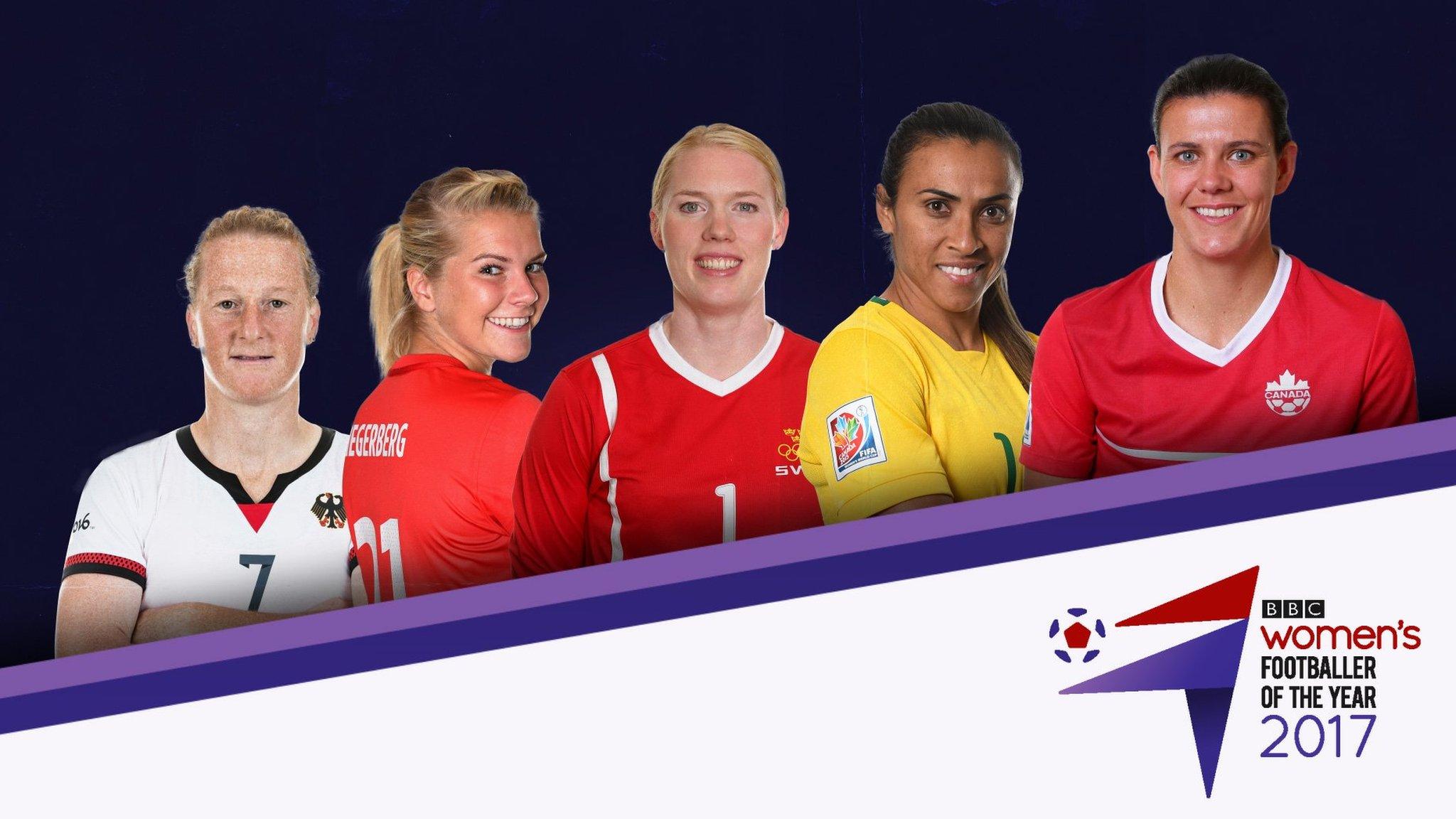
- Published15 May 2017
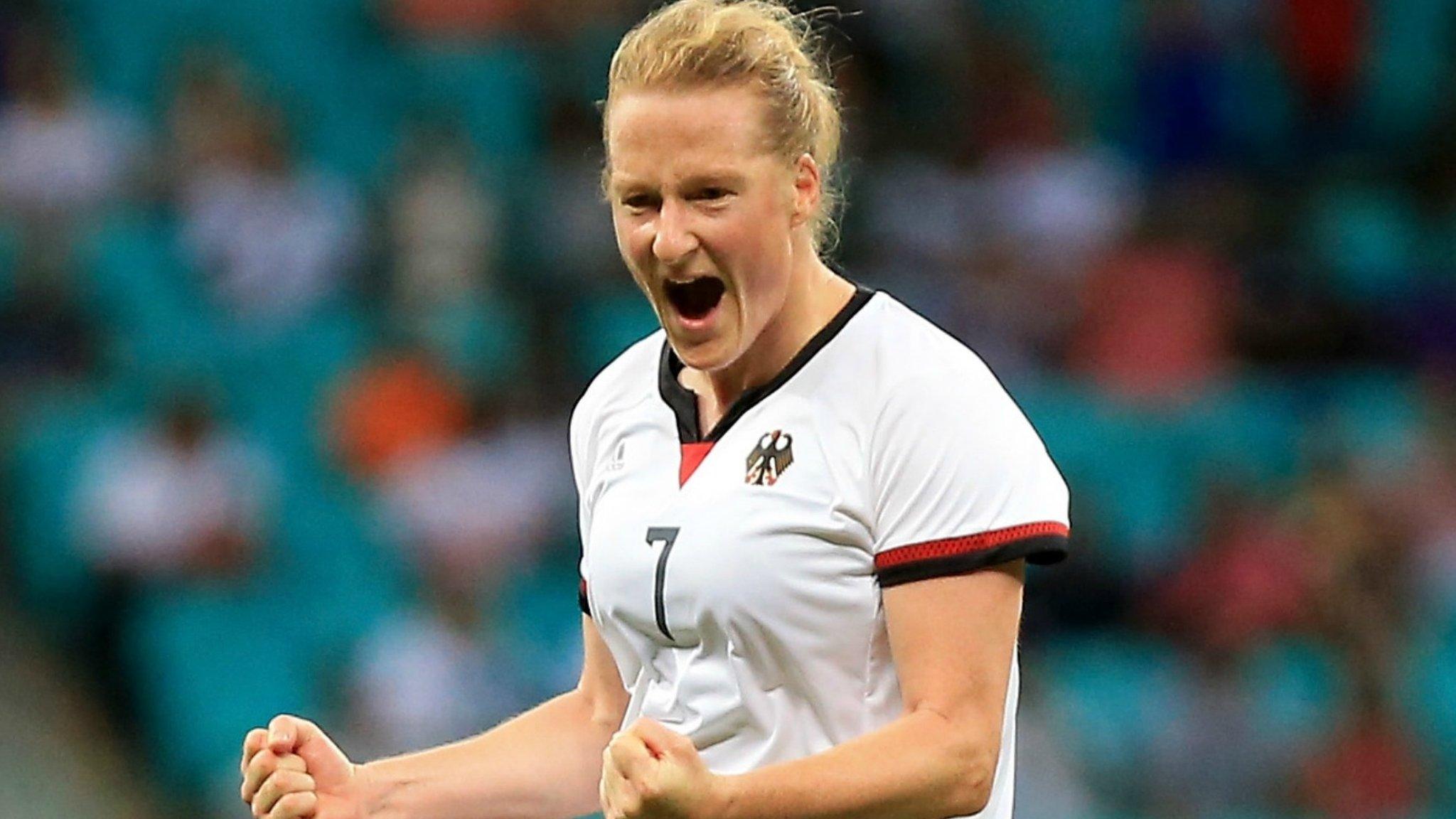
- Published15 May 2017
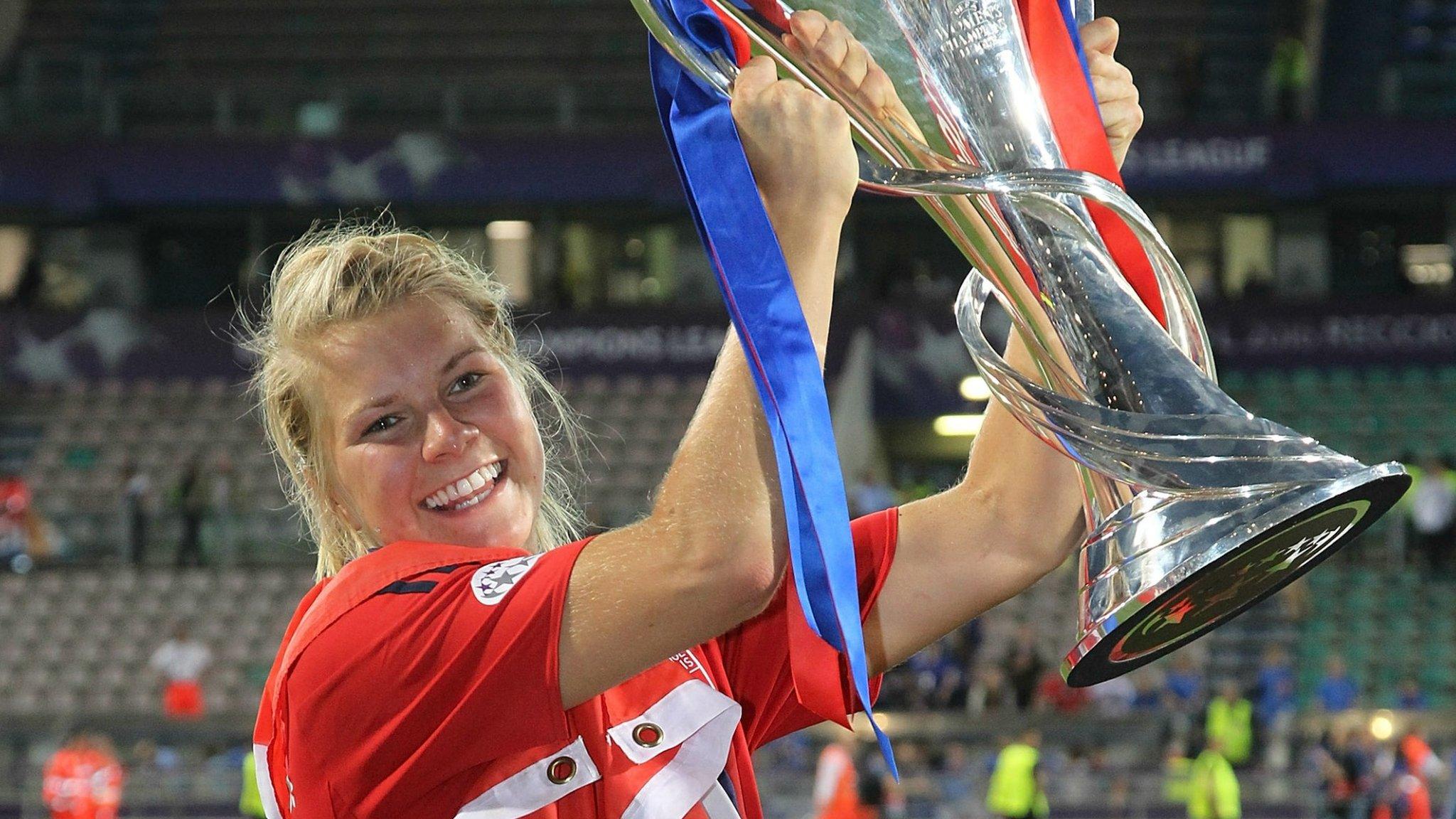
- Published15 May 2017
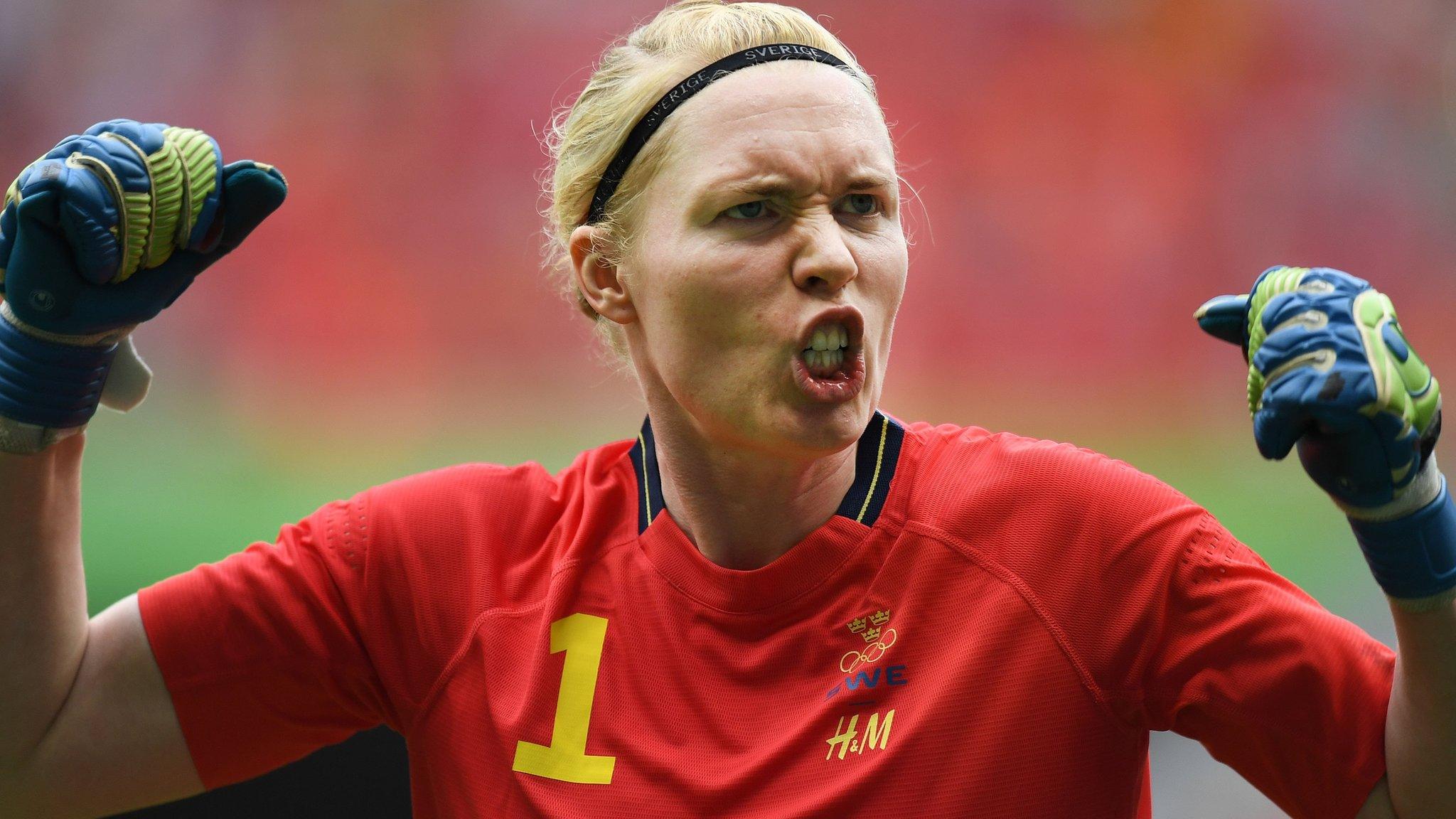
- Published15 May 2017
